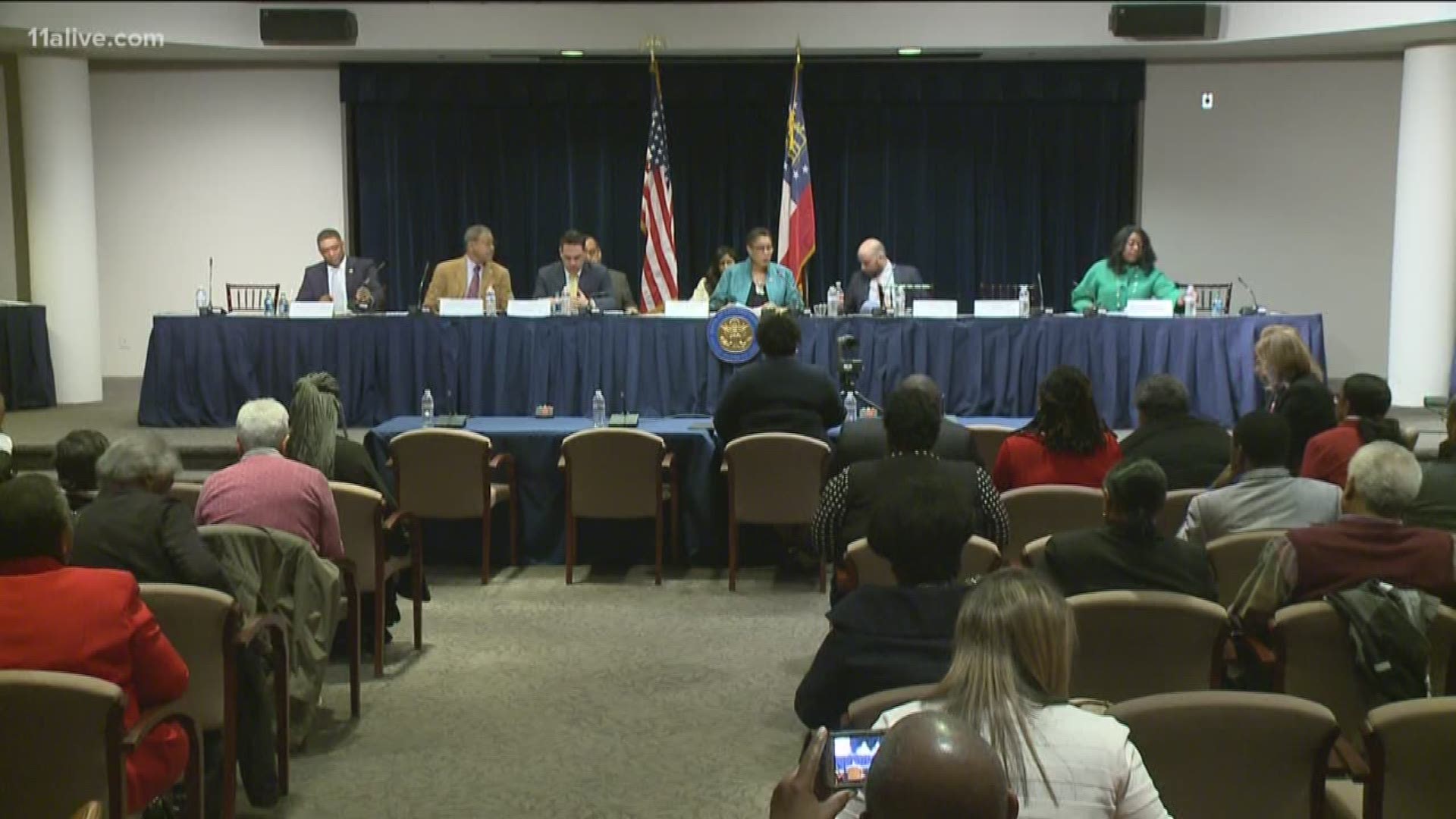ATLANTA — A US House subcommittee is holding a field hearing at the Carter Center in Atlanta on Tuesday as part of an ongoing series of hearings to look into voting irregularities in Georgia in the wake of charges of voter irregularities in recent election cycles.
US Rep. Marcia Fudge (D-Ohio) is the chairperson of the subcommittee, and she has been joined by Rep. Pete Aguilar (D-Calif.), Rep. Hank Johnson (D-Ga.), Rep. Sheila Jackson Lee (D-Tex.) and Rep. Terri Sewell (D-Ala.)
A number of witnesses are discussing the current state of voting rights in Georgia since the US Supreme Court invalidated portions of the 1965 Voting Rights Act, including former gubernatorial candidate Stacey Abrams, Sean Young, legal director of the Georgia ACLU, Cliff Albright, co-founder of Black Voters Matter, Gilda Daniels, director of litigation of the Advancement Project, and Fulton County voter Stacey Hopkins.
In 2013, the US Supreme Court, in its landmark Shelby County, Ala., v. Holder civil rights decision, invalidated several key provisions of the 1965 Voting Rights Act.
The High Court ruled, in a split 5-to-4 decision, that the country had, in the past 50 years, changed for the better and that the conditions that required portions of the nation -- particularly in the South -- to "preclear" changes to voting laws no longer existed.
As a result, according to Chief Justice John Roberts, who was writing for the majority in the case, "Voter turnout and registration rates in covered jurisdictions now approach parity. Blatantly discriminatory evasions of federal decrees are rare. And minority candidates hold office at unprecedented levels."
However, the 2013 Shelby County decision acknowledged the persistence of voter discrimination in some locations.
Since the Shelby County decision, Georgia has aggressively moved to purge voters from its voter registration rolls, as noted by the Brennan Center for Justice.
According to their research data, between the 2012 and 2016 election cycles, Georgia purged 1.5 million voters, twice as many as+ between the 2008 and 2012 cycles.
This was also noted last fall when Gov. Brian Kemp, in his previous role as Georgia's Secretary of State, was accused of using a racially-based methodology for removing as many as 700,000 legitimate voters from the state's rolls between 2016 and 2018.
Georgia used an "exact match" system of voter registration, which the NAACP's Legal Defense and Education Fund claims "imposes discriminatory burdens on Blacks, Latinx and Asian-American voters, whose names are disproportionately and wrongly flagged by the protocol."
The secretary of state's office said that voter applications end up on the pending list after they are processed at the county level. They are then put through a verification through the Social Security Administration or the Department of Driver Services -- which agency is used depends on the number the applicant put on the form.
RELATED | 53,000 Georgia voting applications 'pending' | Here's how to find out if you're on the list
According to the secretary of state's office, if the verification fails, it's generally the name or date of birth that does not match records. If the information does not match the records either agency has on file, it is placed on hold.
Georgia law allows those with pending applications 26 months to fix the verification issue.
The state of Georgia has also closed more than 200 voting locations across the state since 2012, and according to an analysis, 30 of those voting locations were in areas with large African-American populations and nearly 40 in areas with poverty rates higher than the state average.
The subcommittee has been tasked with chronicling an ongoing record of voter discrimination, addressing concerns regarding whether or not individuals rights are actually being abridged as was noted under provisions of the 1965 Voting Rights Act, and finally to ensure that the states are following proper procedures to ensure that no one's right to vote is being abridged as is guaranteed under the 1965 Voting Rights Act.
MORE |

